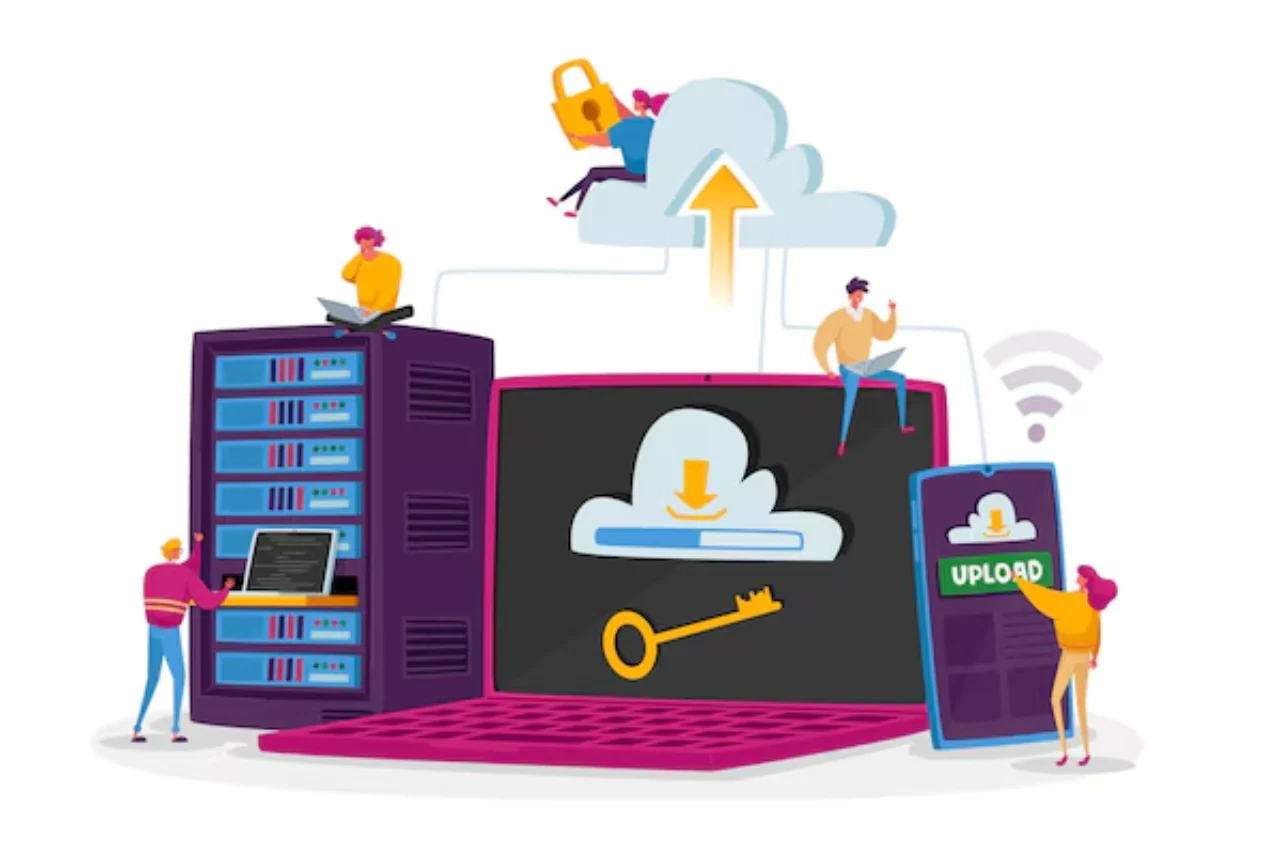Yes, apps require hosting to be accessible online. Hosting provides storage and access to the app’s data.
When creating an app, hosting is essential for storing its data and making it accessible online. Without hosting, the app would not be able to function or be available to users. Hosting services provide the necessary infrastructure for apps to operate smoothly and securely. It ensures that the app’s data is stored securely and can be accessed by users anytime, anywhere. In today’s digital age, hosting is a fundamental component of app development, enabling apps to reach their full potential and provide value to users.
Table of Contents
The Basics of Apps and Hosting
Apps and hosting are two fundamental elements in the digital world. Understanding the relationship between them is crucial for anyone looking to develop or utilize applications. In this post, we will delve into the basics of apps and hosting, shedding light on their individual roles and how they intertwine.

What are Apps
Apps, short for applications, are software programs designed to perform specific tasks or functions. They can range from mobile apps that run on smartphones and tablets to desktop applications for computers. Apps serve various purposes, such as communication, entertainment, productivity, and more. They are created using programming languages and frameworks to provide users with a seamless and intuitive experience.
Understanding Hosting
Hosting, in the context of apps, refers to the storage and accessibility of app-related data and resources. When an app is hosted, its files, databases, and other components are stored on a server that is connected to the internet, enabling users to access the app remotely. Hosting is essential for ensuring the availability and performance of an app, as well as facilitating data management and security.
The Relationship Between Apps and Hosting
Apps and hosting have a symbiotic relationship. Hosting is the foundation on which apps are built and run. It provides the infrastructure necessary for apps to function and be accessible to users. Understanding how hosting supports apps and the integration of apps with hosting is essential for anyone involved in app development and deployment.
How Hosting Supports Apps
Hosting plays a crucial role in supporting the functionality and performance of apps. It provides the necessary server infrastructure, storage, and bandwidth to ensure that apps can handle user requests efficiently. Additionally, hosting services offer security measures to protect apps from cyber threats and ensure data integrity.
Integration of Apps With Hosting
The integration of apps with hosting involves deploying the app on a hosting platform and configuring it to work seamlessly with the hosting environment. This process ensures that the app can leverage the resources provided by the hosting service to deliver a seamless user experience. Furthermore, integration with hosting allows for scalability, enabling apps to handle increased traffic and user demand.
Types of Hosting for Apps
Shared Hosting
Shared hosting is a budget-friendly option where multiple apps or websites share the same server resources. This type of hosting is suitable for smaller applications with moderate traffic, as it offers a cost-effective solution without the need for complex setups. However, shared hosting may lead to slower performance during peak times due to resource sharing. Despite this, it provides essential support and maintenance, making it a practical choice for beginners and small-scale app developers.
Virtual Private Server (VPS)
Hosting provides the necessary server resources and infrastructure to run the app smoothly. While shared hosting can work for smaller apps, a Virtual Private Server (VPS) offers dedicated resources, ensuring better performance and reliability. VPS hosting allows for greater control, customization, and scalability, making it ideal for apps with higher traffic and complex functionalities. Choosing the right hosting solution is crucial for maintaining app performance and providing a seamless user experience.
Dedicated Hosting
Dedicated hosting provides a server exclusively for your app, ensuring high performance, security, and reliability. This type of hosting is ideal for apps with high traffic or specific resource needs. It offers complete control over the server environment, allowing customization to suit your app’s requirements. While dedicated hosting can be more expensive than shared or cloud options, it provides the stability and performance necessary for demanding applications.
Factors Influencing Hosting Choices for Apps
App Complexity
The complexity of an app impacts the hosting needs. More complex apps may require dedicated servers for optimal performance.
Expected Traffic Volume
High-traffic apps need scalable hosting options to handle the volume effectively and prevent downtime.
Security Needs
Apps storing sensitive data require secure hosting with SSL certificates and regular backups to protect user information.
Challenges and Solutions in Hosting Apps
When it comes to hosting apps, various challenges and solutions need consideration. Let’s delve into some key aspects of hosting apps and explore how to address them effectively.

Scalability Issues
Scalability is crucial for app performance. When traffic surges, apps must handle increased load smoothly. Do apps require hosting? Yes, proper hosting solutions ensure apps can scale efficiently. Without robust hosting, apps may face downtime and performance issues, impacting user experience. Choosing the right hosting provider allows for automatic scaling, ensuring your app remains responsive and reliable, even during high-traffic periods.
Performance Optimization
Optimizing performance is essential to ensure apps run efficiently, delivering a seamless user experience. Do apps require hosting? Absolutely. Hosting provides the necessary infrastructure to handle data storage, server management, and network resources. Proper hosting ensures that apps remain fast, reliable, and secure, catering to user demands and high traffic. By choosing the right hosting solution, you can significantly enhance your app’s performance and overall user satisfaction.
Data Security Measures
Ensuring robust data security is paramount to protect sensitive information from unauthorized access. Apps require hosting to securely store and manage data, ensuring compliance with privacy regulations. Choosing a reliable hosting provider with strong encryption protocols and regular security updates is essential. Implementing access controls and monitoring systems further enhances data protection, safeguarding against potential threats and breaches.
Cost Considerations in App Hosting
App hosting is an essential part of app development. It requires careful consideration of cost, as it can vary depending on the hosting provider and the features required. Proper research and planning can help businesses make the best decision for their app hosting needs.
Initial Setup Costs
Creating an app requires a lot of effort and investment, including the cost of hosting. Many app developers believe that hosting is an unnecessary expense, but it’s essential to keep an app functional. The initial setup cost includes the charges for hosting the app on a server. The cost of hosting depends on the type of app you want to create and your hosting requirements.
Ongoing Maintenance Expenses
Hosting is not a one-time expense; it’s an ongoing process. After the initial setup, there are various ongoing maintenance expenses to keep the app running smoothly. One of the significant ongoing expenses is the cost of maintaining the server, which includes server updates, security patches, and backups. Additionally, the cost of maintaining the app itself, such as fixing bugs, updating features, and adding new functionalities, can also be significant.
Cost Optimization Techniques
While hosting an app can be expensive, there are several cost optimization techniques that can help reduce the overall cost. One of the most effective techniques is to use a cloud-based hosting service that provides scalable and flexible hosting options. Another option is to use a shared hosting service, which is a cost-effective way to host an app. However, it’s essential to ensure that the shared hosting service provides sufficient resources to keep the app running smoothly.
In conclusion, hosting is a necessary expense for any app, and developers must consider the cost implications while creating an app. The initial setup cost and ongoing maintenance expenses must be factored in while creating an app. By using cost optimization techniques, developers can reduce the overall hosting cost and keep the app running smoothly.
Future Trends in App Hosting
Hosting for apps is a critical aspect of shaping future trends. Apps necessitate hosting for optimal performance and user accessibility. The evolving landscape of app hosting underscores its indispensable role in the digital realm.

Cloud Hosting
Cloud hosting is revolutionizing app deployment with scalability and flexibility. Apps hosted in the cloud benefit from seamless updates and reliable performance.
Serverless Architecture
Serverless architecture eliminates the need to manage servers directly. It allows developers to focus on coding and enhances app scalability.
Conclusion
Hosting is an essential aspect of app development and deployment. Without hosting, an app cannot be accessed and used by its intended audience. It is important to choose a reliable and secure hosting provider that can meet the specific requirements of the app. By considering the factors discussed app developers can make informed decisions about hosting options that will ensure the success of their apps in the digital marketplace.


